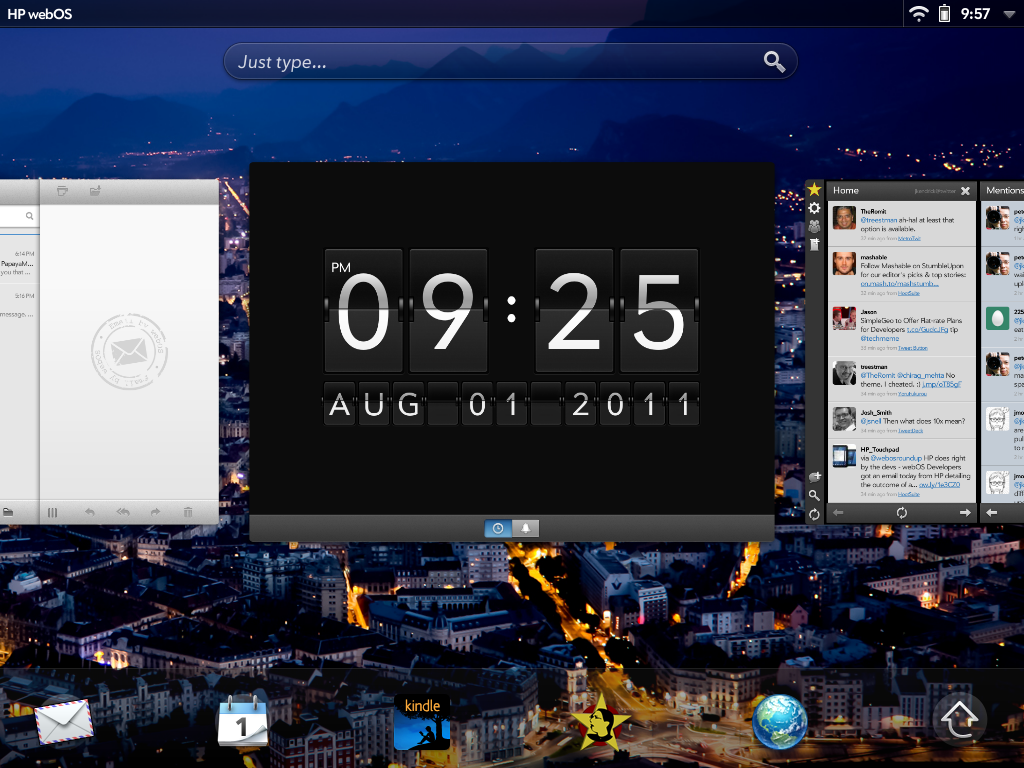Overclocking the HP TouchPad cranks up the speed


The webOS homebrew community has been around since the platform launched several years ago. It has evolved into a sophisticated operation that produces apps and patches for the OS that helps deal with problems and adds features. HP has been working with this community to make sure that user's needs are being met either officially or through the homebrew route.
HP TouchPad Overclocked to 1.7 GHz
Even before HP released the OTA update this week, homebrew solutions existed to deal with performance issues and add features to the TouchPad. Developers had identified areas where webOS fell short in running as fast or as well as it should, and released fixes called patches for them. I found a couple of these patches made a big difference in the operation of the TouchPad, due to background system logging that was happening. These patches turned that logging off and the difference in performance was significant.
I applied the OTA system update as soon as it was available and was impressed with the improvement over the TouchPad as released by HP. I then applied homebrew patches to make it even better and the result was spectacular. My TouchPad was running almost as well as the iPad, which is the goal in the tablet world.
Last night I decided to take it a step further with the homebrew stuff, and applied a test kernel that overclocks my TouchPad to 1.7 GHz. This has been a very stable upgrade that doesn't impact battery life much, yet has made my TouchPad as fast as any tablet I have used. Opening apps is almost instantaneous, and the entire system operation is as smooth and fast as can be.
While homebrew apps and patches can be used with little risk, playing around with device kernels is not for the faint of heart. The instructions for using these experimental kernels are detailed and must be followed to the letter, including paying particular attention to the warnings from the developers. Once all steps are performed as indicated, swapping kernels is as easy as tapping on the screen and rebooting.
These patches make a tremendous difference in the performance of the TouchPad. I stepped ZDNet's Jason Perlow through the process of getting started with homebrew on his TouchPad today through a one hour Skype video call from my TouchPad. I have never seen Jason so excited as he was after getting his tablet patched up, except for the time his iPad hit the patio.
It would have been better if HP had incorporated some of these patches to the system prior to launch, and a lot of the complaints about performance would have been avoided. It's great to have the homebrew crew supported the TouchPad.
Updated: For those wondering how overclocking the TouchPad affects battery life, my Skype video call to Jason Perlow was an hour long with video, and battery was down to 91 percent when ended.
See also:
- Is XP finally dying or is it the PCs it’s been running on?
- iSuppli: Tablet competitors can’t compete with iPad’s design
- HP already offering $50 “instant rebates” on TouchPad tablet
- Hey, Parents! Do you know what your students really need for back to school?
- HP TouchPad: Still better than Honeycomb
- Intel has big plans for Ultrabooks
- Lenovo IdeaPad K1 tablet: First impressions
- CNET: Tablet Buying Guide